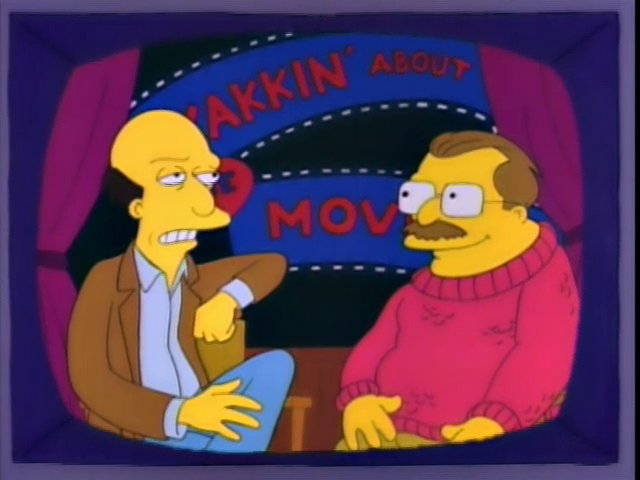La Gomera
3.3 (86%) 254 votes
La Gomera
*
§§§§§§§§§§§§§
https://rqzamovies.com/m16635.html
?????????????
Year=2019
Country=France, Germany
&ref(https://m.media-amazon.com/images/M/MV5BMjI4MjM1NTctMmQwYy00ZDE3LTllOTAtODRlNjJkMTg1MDAwXkEyXkFqcGdeQXVyMDA4NzMyOA@@._V1_UX182_CR0,0,182,268_AL_.jpg)
Runtime=1h 37Minute
Writed by=Corneliu Porumboiu
A corrupt police inspector from Bucharest travels to the Canary island of La Gomera to master an ancestral whistling language in order to facilitate the jailbreaking of a controversial Romanian businessman with access to thirty million euros
La gomera download movie free. Great video. I burst out laughing when you said The sea goes right around the island 3:00 though ?. La gomera download movie 2. 22:29 - Der Distelfink. La Gomera Download.
3.3 (86%) 254 votes
La Gomera
*
§§§§§§§§§§§§§
https://rqzamovies.com/m16635.html
?????????????
Year=2019
Country=France, Germany
&ref(https://m.media-amazon.com/images/M/MV5BMjI4MjM1NTctMmQwYy00ZDE3LTllOTAtODRlNjJkMTg1MDAwXkEyXkFqcGdeQXVyMDA4NzMyOA@@._V1_UX182_CR0,0,182,268_AL_.jpg)
Runtime=1h 37Minute
Writed by=Corneliu Porumboiu
A corrupt police inspector from Bucharest travels to the Canary island of La Gomera to master an ancestral whistling language in order to facilitate the jailbreaking of a controversial Romanian businessman with access to thirty million euros
When they said “whoo foo whoo foo”, I felt that. We use cookies to offer you a better experience, personalize content, tailor advertising, provide social media features, and better understand the use of our services. To learn more or modify/prevent the use of cookies, see our Cookie Policy and Privacy Policy. In this short piece, we argue for a fundamental reconsideration and reorganization of knowledge production. Intellectual and cultural inequality are part and parcel of socioeconomic inequality. How can we create a better world if we are not clear about the premises behind the knowledge that we have about that world and how it is produced? We need to look carefully at what is silenced and what is said out loud; at what is obscured, hiding in plain sight, or given centre stage. Not only is the task at hand to see clearly what comes into view when these embedded assumptions are excavated. It is also to create new words, new methods, and new institutions that do not repeat the same mistakes. It is a plea to train the next generation differently, so they are prepared to chart a new path toward producing, classifying, and using knowledge in more constructive and inclusive ways. 3 etnološka tribina 41, vol. 48, 2018., str. 3-50 DOI:10. 15378/1848-9540. 2018. 41. 01 review article, submitted 16. 3. 2018., accepted 14. 6. D ECONSTRUCTING AND RECONSTRUCTING Embracing Alternative W a ys of Producing, Classifying and Disseminating Knowledge P eggy Levitt Department of Sociology, W ellesley College P olitics and Social Change W orkshop, W eatherhead Center for International A?airs, Harvard University, Cambridge Maurice Crul Department of Sociology, Faculty of Social Sciences, V rije Universiteit Amsterdam In this short piece, we argue for a fundamental reconsider ation and reorganization of knowl- edge production. Intellectual and cultur al inequality are part and parcel of socioeconomic inequality. H ow can we create a be?er world if we ar e not clear about the premises behind the knowledge that we hav e about that world and how it is produced? W e need to look care- fully at what is silenced and what is said out loud; at what is obscured, hiding in plain sight, or given centre stage. N ot only is the task at hand to see clearly what comes in to view when these embedded assumptions are excava ted. It is also to create new w ords, new methods, and new institutions that do not repeat the same mist akes. It is a plea to train the next gen- eration di?erently, so they are prepared to chart a new path t oward producing, classifying, and using knowledge in more constructive and inclusive wa ys. Keywords: knowledge production, decentre, post -colonial, critical, culture, global Nearly one billion people ( or roughly one out of every seven people in the world today) ar e internal or international migran ts who move by force or by choice, with great success or gr eat struggle. At the same time, the Unit ed Kingdom’ s decision to leave the Eur opean Union, Presiden t T rump’ s calls to strengthen the wall between the U. S. and Mexico, and the rise of populist parties in Hungary, Poland, and I taly re?ect heightened na tionalism and xenophobia and increased e?orts to thwart mo- bility, especially among refugees, the poor and unskilled. ?ese dynamics have dramatic social, political and institutional conse quences. ?ey challenge long-standing assumptions about ho w people live and work, and about how social institutions function ? how and where individuals raise children and care for the elderly; how class, rac e, and gender are constitute d; how livelihoods are earned; the multiple communities with which people identify; what categories such as “ assimilation”, “int egration”, “ development”, “social inclusion”, and the “Glob- DISCUSSION 4 al North” or “ Global South” a ctually mean; and where the rights and responsibilities of citizenship get ful?lled. ?ey bring into focus new scales and sites of governance ? drawing our a?ention to incr easingly important regional and supranational insti- tutions that a?empt to h armonize but o?en create new forms of social exclusion instead. ?ey produce societies tha t are more and more diverse ? racially, ethnical ly, and religiously, but also in terms of membership and rights. ?ere are incre asing numbers of long-term residents without membership, who live for extended periods without full rights or representation, in conditions of semi-permanent imperma- nence. ?ere are also incr easing numbers of long-term members without residence who continue to in?uence the economics and politics of their homelands from afar but who may or may not ha ve formal political representation. ?e ?uid 1990s global conceptual lexicon to which many of us contributed, in - cluding expectations of ?ows, networks, transnationalism, and cosmopolitanism, is out-of-sync with current realities, and much more possible for some racial and eco - nomic groups than for others. Much of mains tream scholarship on migration, race, and ethnicity is also o? key because it still relies unre?exively on old categories, without considering their intellectual genealogies or the assumptions a bout space, scale, and values upon which they are based (Alba and F oner 2015; Portes and Rumbaut 2014; Alba and Nee 2003). Int egration and assimilation are two such concepts. I n much re - search, there is still an underlying assumption that migrants thr oughout the U. and Europe need to, or will become integrated into, a White majority mainstream, even if researchers ackno wledge that both groups change and ar e changed by one another. In many large cities, howe ver, migrants and their children liv e alongside other migrants in areas where the native-born are l argely absent. ?ere are also ma ny cases in which the so-called migrants are actually the long-term urban r esidents, who have been living in the city for three or more generations, while the real newcome rs are White residents returning to the urban core. Or there are examples where the majority into which new - comers are expected to assimilate is de?ned b y ethnicity or religion. Scholars of race and ethnicity are not the only ones guilty of ignoring the conse- quences of the intellectual genealogies and ca tegories they rely on. Much of the so- cial science and humanities produced in E urope and the U. is still Western-centric, based on theories developed in and re?ectin g the experience of the Global North. It is an insular conversation primarily between people who write and read in E nglish, and the geographic focus is o?en limite d to what is referred to as the Global N orth or W est. One striking example is the research done about the political crises aris- ing from refugee migration from S yria, Afghanistan, Iraq and Eritrea in 2015 and 2016. European res earchers looked primarily at the e?ect on Europe, while it was actually countries like Jordan, T urkey and Lebanon that were most a?ected. Educa - tional experts in Europe studying the integration of Syrian refugee children did so in almost total isolation from resea rchers studying similar questions throughout the Middle East. ?ey failed to look at the school system from which students ha d come, thereby missing an important contributor to studen t performance. In this short think piece, we want to argue for a fundamental r econsideration and reorganization of knowledge pr oduction. Intellectual and cultural inequality are part PEGGY LEVITT, MAURICE CRUL. Deconstructing and Reconstructing 5 and parcel of socioeconomic inequality. How can we create a be?er w orld if we are not clear about the premises behind the knowledge th at we have about that w orld and how it is produced? W e need to look carefully at what is silenced and what is said out loud; at what is obscured, hiding in plain sight, or given centre sta ge. Not only is the task at hand to see clearly wha t comes into view when these embedded assump- tions are excavat ed. It is also to create new wor ds, new methods, and new institutions that do not repeat the sa me mistakes. It is a plea to train the next genera tion di?er- ently, so they are prepared to ch art a new path toward producing, classifying, and using knowledge in more inclusive and constructive wa ys. ?ere is a large and rich body of work from critical theory and post-colonial scholars that tries to do much of the intellectual work w e propose (see, for exam- ple, de Sousa Santos 2016; G arcia Canclini 2014; Mignolo 2012). Gilroy (2005), Hall (1997), Spivak (1999), Chakrabarty (2000), and Asad (1993, 2003) write compellingly about the need to “pro vincialize Europe”, not in the sense of shi?ing their a?ention from Eur ope to “e lsewhere”, but in calling a?ention to the ways that European and American theore tical formations are promoted as general, unive rsal theories, and to the broad e?ects of these univ ersalizing theories. As Chakrabarty (2000) notes, however, (and as the term “ provincializing” suggests) the purpose of critique is not to reject “European ” theories and replace them with others, or to “?ll out” our theoretical armature to include alterna tive points of view in ways that fail to look at the shaping power of the se dominant theories. ?e immediate focus of “provincializing” Europe is to suture the particular historical conditions of its theo- retical projects back ont o or into those theories, so that scholars and others will be able to evaluate these the ories along the same lines as other theories not generally thought of as universalizable. ?e true decentralization of scienti?c and analytical knowledge requires re cognizing and legitimating other knowledges and other histo- ries produced beyond this Eurocen tric ax is. ?is call has been taken up, to va ry ing degrees, by di?erent disciplines. Schola rs of comparative litera ture, feminist and religious studies rese archers, and anthropolo- gists have spilled a great deal of ink, while political scienthttps://hideuri.com/WgdJ3R
La gomera download movie free. Great video. I burst out laughing when you said The sea goes right around the island 3:00 though ?. La gomera download movie 2. 22:29 - Der Distelfink. La Gomera Download.
2:27 boy has cute eyes. La gomera download movie online. Search Clear search Close search Google apps Main menu Send feedback on... This help content & information General Help Center experience You can download a video so you can watch it anywhere, even when you don't have an internet connection. Download videos You can download a video that you bought on up to five devices. If you rented a video, you’ll only be able to download it onto 1 device. To watch or download a rented video on another device, make sure to remove it from the first device. Note: You won't be able to download extra videos onto your Android phone. Download using mobile data You can change your settings to download using mobile data. Downloading your video using mobile data may result in additional data charges from your carrier. Delete a downloaded video Was this helpful? How can we improve it?
Ach Roxi, ich liebe deine Videos einfach. vermitteln immer Harmonie, einen positiven mindset und gute Laune- alles Prinzipien, nach denen ich leben möchte! bleib vorbildlich. damit meine ich eig bleib einfach wie du momentan bist. La Gomera Download movie. La Gomera Download movie reviews. Thats one brave kid! p. First Hit: I was, and even a day later, confused by this story and film.
First Hit: I was, and even a day later, confused by this story and film.
Where was your life jacket Alan? You give loads to this sport and you set an example to the younger ones,so get your life jacket on. No fish is worth a life. La gomera download movies. La gomera download movie torrent. La Gomera Download movie page. Deberias de invertir en mejor iluminacion para la camera de atras.
La gomera download movie torrent. La Gomera Download movie page. Deberias de invertir en mejor iluminacion para la camera de atras. 
Ach Roxi, ich liebe deine Videos einfach. vermitteln immer Harmonie, einen positiven mindset und gute Laune- alles Prinzipien, nach denen ich leben möchte! bleib vorbildlich. damit meine ich eig bleib einfach wie du momentan bist. La Gomera Download movie. La Gomera Download movie reviews. Thats one brave kid! p.
Top, top, awesome, it's inspired me to carp fish again thank you. La gomera download movie trailer.
 First Hit: I was, and even a day later, confused by this story and film.
First Hit: I was, and even a day later, confused by this story and film.We're really introduced to Cristi (Vlad Ivanov) and Gilda (Catrinel Marlon) when Gilda walks up to Cristi and asks to speak with him in his apartment. Cristi whispers into her ear that he apartment is bugged, so she kisses him and tells him she'll play the part of a hooker, and they can whisper her request, which is to help her by getting a criminal, Zsolt, out of prison. In an early scene, Cristi is on a ferry heading to an island where the ancient people use to communicate by whistling. Cristi is part of a plot working with other criminals to free Zsolt and to do this he has to learn the whistling language. The language breaks vowels and consonants into seven whistling sounds. This lesson in this language was the most exciting part of the film. I was fascinated with Cristi learning how to whistle and wanted to practice, along with him, right in the theater. As the film develops, some parts led me to believe that the story in the movie was pre-planned, and I missed something as the film progressed. At other times, I felt as though Cristi and Gilda were planning the ending along the way because they'd fallen for each other. As an undercover detective, Cristi works for an unnamed woman place by Rodica Lazar, who is trying to play both ends of this story. The result is a film that has the appearance of a storyline running at two different levels, but in the end, the person sitting next to me asked if he missed something about how the ending worked out, I said "I don't know, and I still don't. Ivanov was quietly compelling as the detective who was also on the take. Marlon was excellent as the woman who seemed totally in control of story behind the plot. Lazar was strong as the head of the investigation and also susceptible to corruption. Corneliu Porumboiu wrote and directed this quizzical story that left me hanging. Overall: I either missed a critical section of this Romanian film or the story was attempting to be too elusive.About Movie Downloader Freemake Video Downloader is a freeware download manager developed by Ellora Assets Corporation The program is designed to download embedded videos in FLV, MP4, WebM, or 3GP formats from any website, including the popular sites YouTube, Facebook, Vevo, Dailymotion, Vimeo, Veoh and Metacafe The software gives a list of all video qualities available for downloading and is able to convert downloaded videos to multiple formats, including formats designed for the iPod, iPhone, PlayStation, and Android mobile devices. Updated: August 10, 2017 by System Information OS Windows: XP / NT / 10 / 7 / 8 License & Price Free to try Download Movie Downloader for Windows.
Where was your life jacket Alan? You give loads to this sport and you set an example to the younger ones,so get your life jacket on. No fish is worth a life. La gomera download movies.
 La gomera download movie torrent. La Gomera Download movie page. Deberias de invertir en mejor iluminacion para la camera de atras.
La gomera download movie torrent. La Gomera Download movie page. Deberias de invertir en mejor iluminacion para la camera de atras. 
La gomera download movie gratis. La gomera download movie watch. Taguluche Represent. Casa de tito ceux qui savent reconnaitrons. La Gomera download movie. La gomera download movie hd. Pay attention, you can not eat in a restaurants, but buy in stores with ordinary products and fruits. Keep in mind that the whole island is duty free, i.e. booze is also relatively cheap. La Gomera Download movie page imdb. La gomera download movie times.
- Reporter LaBola Bulldogs
- Biography: Bulldog francés y Cane corso

コメントをかく